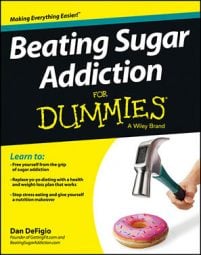Your body is designed to run on natural foods like vegetables, meat, eggs, fruit, fish, nuts, and seeds. When you start to stray from that nutrition foundation by eating lots of processed foods, you lose vital nutrients and consume large amounts of manmade chemicals.
To make convenience or packaged foods, companies add chemicals like artificial flavors, chemical coloring, preservatives, emulsifiers, hydrogenated oils, and high-fructose corn syrup and other cheap sweeteners to extend shelf life and add “taste.” Sticking with natural foods instead of processed foods delivers more nutrition and less sugar, preservatives, artificial flavors and colors, and other chemicals.
Picking produce
Sixty or seventy years ago, farmers used crop rotation and manure to keep their soil healthy. Today, the industrial agriculture business uses chemical fertilizers in the ground and covers genetically modified plants with pesticides and herbicides. After harvest, the companies treat the produce with additional chemicals to delay ripening and spoilage while the food is shipped halfway across the world!
The nutrition content of this produce is severely compromised. Buying organic produce from local farmers (or growing your own!) ensures that you get the freshest, most nutritious food available, without all the added chemicals. You also get produce that’s picked at its peak ripeness, making it more appealing to eat!
Eating whole foods like vegetables, fruits, and nuts is important for vitamins, minerals, fiber, and phytonutrients, whether they’re organic or not!
You should seek out vegetables that aren’t genetically modified — Non-GMO is the term to look for. Because no one knows the long-term health consequences of engineered food, GMO food has been banned in all of Europe (and in dozens of non-European countries, too).
Buying meat, dairy, eggs, and fish
Animals in commercial feedlot facilities are fed unnatural foods loaded with hormones and antibiotics so that the animals fatten quicker and can survive the diseases that crowded, infected living conditions produce. Eating these types of animal products increases inflammation in your body and raises your risk of heart disease and cancer.
Here are some tips for choosing healthier animal products:
Fish and seafood: Wild-caught seafood is a great source of protein and essential fats. Sadly, the oceans have become contaminated with mercury, polychlorinated biphenyls (PCBs), and other poisons, so nowadays you must limit the amount of fish in your weekly diet. This is especially important for pregnant women and young children. Visit the EPA website for current recommendations on contaminated fish and shellfish consumption.
Meat and dairy: Organic, free-range livestock (and the dairy foods from them) have a better nutrition profile — more healthy fats and nutrients and less inflammatory chemicals — than food from commercial feedlot animals, so buy your food from local organic farms.
Poultry and eggs: Aim to buy chicken and turkey meat raised without antibiotics and growth hormones in their feed. Whenever possible, choose eggs from pasture-fed chickens, which have less cholesterol and more vitamins and omega-3s (and the living conditions for chickens in industrial operations are atrocious).

